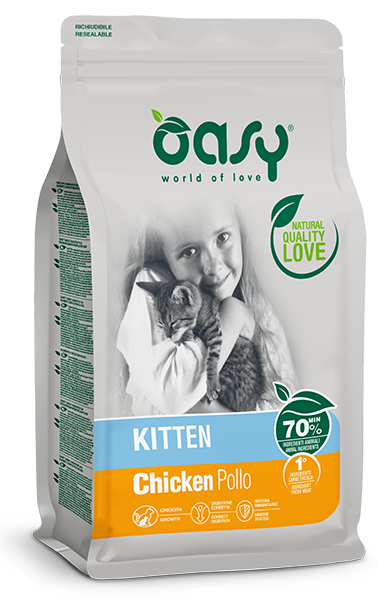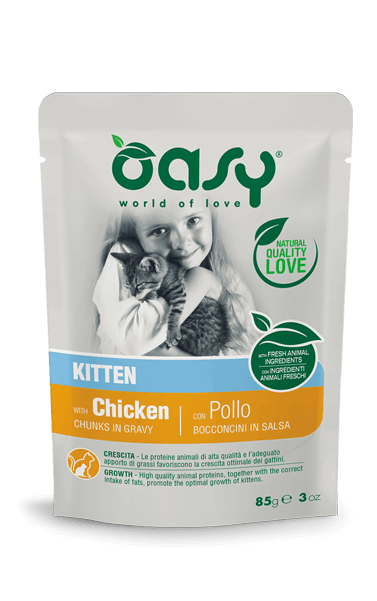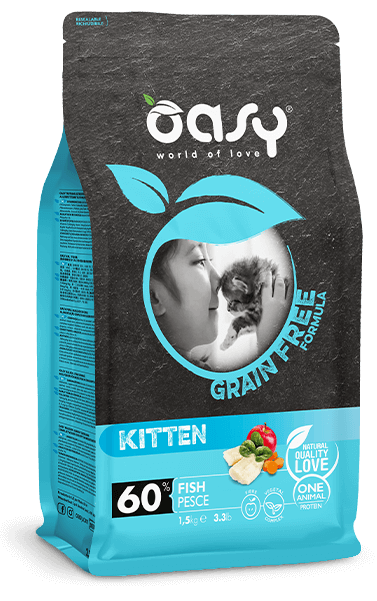Sensitivity, attention and, above all, respect of roles and times: these are the rules you should follow when dealing with a new litter in your house. Let’s find out together what you should do to guarantee comfort and wellbeing of your newborn kittens until the weaning.
Birth is always a magical, gorgeous moment, and pets are obviously no exception.
Although sterilisation is the best way to guarantee our pets a long and good life - see our pet news
here - and avoid overcrowded catteries and cat colonies, if you decide not to sterilise your cat, you could have a litter at home very soon. So, in this situation, you should be well prepared and aware of what’s going on! Besides, you better be very respectful during your kittens’ first months of life. Therefore, below are three tips to ensure mother cat and her kittens maximum well-being. Let’s start.
1) Respect mother cat’s role (from the very beginning)
Let’s start with a big “no”: you shouldn’t interfere in mother cat-kittens relationship during the first weeks. Considering that mother cat just gave birth, you should leave her and her kittens alone as much as you can; let nature take its course.
Newborn kittens can neither hear nor see, and they can count only on smell. As weeks go by, everything they do is just eating, sleeping and being helped by their mum for their physical needs. She is, in fact, the one, who will take care of her kittens and give them all the warmth and nourishment they need.
What about you? You shouldn’t touch the kittens, especially until they start opening their eyes (at about 10 days). If needed, your help will be precious for mother cat: always remember to supply her with the right nutrition throughout the entire duration of lactation (
Lifestage Kitten is a good choice, ideal for kittens from 1 to 12 months and for pregnant and nursing cats).
At the same time, you should provide them with some different things: an adequate temperature in the house or in the place you chose as their shelter (warm), a bedding, which should be as comfortable as possible, and keeping them away from bright lights - especially when they start opening their eyes - and loud noise. Kittens, like human babies, are very sensitive during the first days of life: even if their mum helps them with any physical needs, you can still do something to make sure they don’t get annoyed from the outside.
2) Respect weaning’s duration
Week by week, you will see the kittens trying to stand on their own paws.
However, even though they’re growing and becoming more and more autonomous, you better respect the weaning phase, that is when kittens start eating solid food instead of drinking breast milk, until its very end (at about 8/10 weeks).
Kittens only have milk during their first weeks of life. The first milk they drink comes from their mother’s breast and it’s called colostrum, which is full of immunoglobulinis and antibodies: it helps them develop their immune system against many diseases. Their first teeth will appear only some time later, allowing the kittens to eat more solid food and to drink less milk (mother cat’s milk production in fact will progressively decrease).
So, before giving them high quality
dry and wet food to ensure them well-being and health every day, let nature take its course - even in this case. This also affects timing for adoption, whenever you like to give some of the kittens away: the best time to do it is from the third month onwards, and anyway never before the first 60 days of life. This is to ensure a healthy growth and to avoid emotional trauma and physical problems for mother cat and her kittens.
3) Respect kittens’ domestic relationships
With all the nutrients, breast milk is the first source for kittens’ healthy growth. However, kittens’ domestic relationships play an essential role in their first three months of life. Interacting with their mum and playing with their brothers are fundamental basis for kittens’ correct behavioral and psychological development.
No one, in fact, is more important than mum, who teaches her kittens how to interact with other kittens and, obviously, the human family!
For this reason, in this life stage, kittens learn a few essential, useful things for their future, such as:
- How to use the litterbox.
- Building a correct relationship with other kittens, learning how to behave and respect the roles.
- Limiting their aggressiveness and exuberance, controlling the scratching and biting.
- Developing self-control and learning how to cope with some “NOs”.
So, a litter at home is a magical, but also delicate moment: always remember to be responsible, respectful, and, of course, to show a lot of love!


